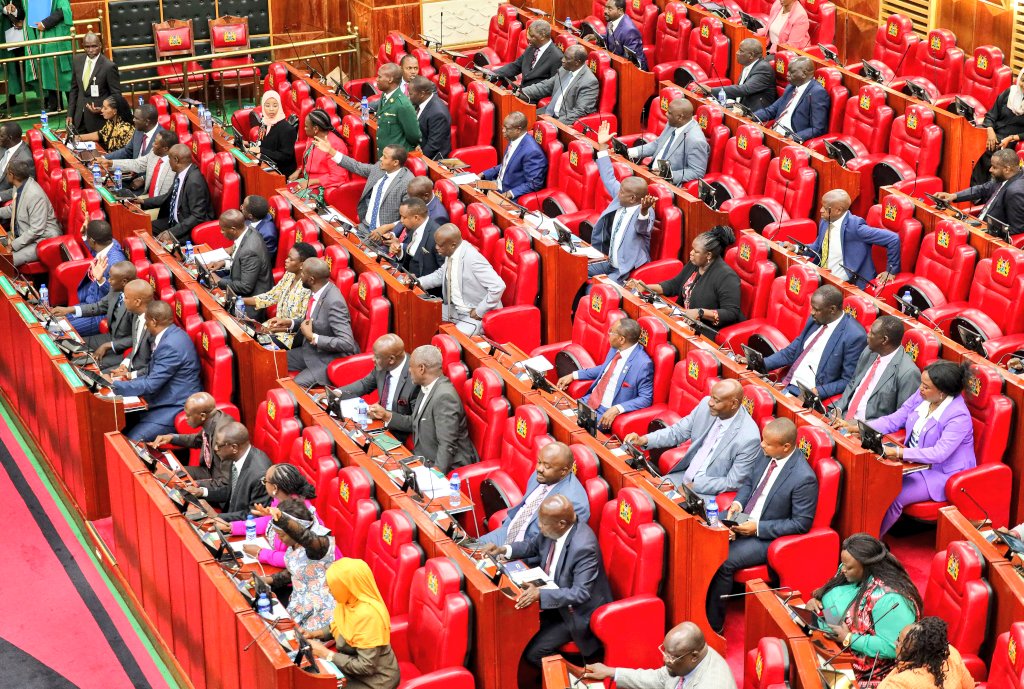𝐌𝐏𝐒 𝐀𝐏𝐏𝐑𝐎𝐕𝐄 𝐁𝐈𝐋𝐋 𝐓𝐎 𝐒𝐓𝐑𝐄𝐍𝐆𝐓𝐇𝐄𝐍 𝐇𝐄𝐀𝐋𝐓𝐇 𝐏𝐑𝐎𝐃𝐔𝐂𝐓 𝐑𝐄𝐆𝐔𝐋𝐀𝐓𝐈𝐎𝐍
The National Assembly has given its nod to the Kenya Drugs Authority Bill (2022), which establishes a comprehensive legal framework for the regulation of health products and technologies in Kenya.
The Bill establishes the Kenya Health Products and Technologies Regulatory Authority (KHPTA). The authority will replace the Kenya Drugs Authority and will have a broader mandate, overseeing a wider range of health products including medical devices, radiopharmaceuticals, herbal medicines, cosmetics, clinical trials, and digital health technologies.
The KHPTA will be empowered to set and enforce stricter standards for the safety, quality, and efficacy of health products. It will also have the authority to conduct inspections, issue licenses, and impose penalties for non-compliance.
The Bill’s long title has been revised to emphasize its comprehensive regulatory role, aiming to ensure the safety, quality, and efficacy of health products and technologies. “The establishment of KHPTA will not only protect public health but also provide a structured regulatory framework that aligns with global standards,” said Chairperson, Health Committee, Hon. Robert Pukose.
The legislation sponsored by Hon. Robert Pukose recognizes the growing importance of digital health technologies and provides a framework for their regulation, ensuring that they meet safety and efficacy standards.
Clause 2 of the Bill broadens the definitions of health terms to include “dietary supplement,” “biologicals,” “adverse event,” and “medical device.” It also includes new regulatory terminology for emerging concerns, including “active surveillance” and “parallel importation,” ensuring efforts to keep pace with international regulatory practices.
Central to the Kenya Drugs Authority Bill (2022) is a detailed regulatory framework for licensing health products, devices, and related technologies. Health products must now undergo registration and quality checks before reaching consumers. Notably, the legislation also introduces special provisions for emergency situations, allowing for the provisional registration of products deemed critical for public health.
The Bill calls for a National Pharmacovigilance Centre dedicated to monitoring adverse reactions and the quality of health products, ensuring that safety concerns are swiftly addressed. A National Quality Control Laboratory will also be established to test products, particularly those with suspected issues or safety complaints. It requires manufacturers and importers to report adverse events to the KHPTA.
The Bill aims to streamline the regulatory process for health products, reducing the time it takes for new products to reach the market while ensuring their safety and quality.
The legislation further prioritized public health by providing a framework for the timely approval of essential medicines and medical devices, especially during public health emergencies.
The newly passed legislation fosters innovation in the healthcare sector by streamlining the regulatory processes for new products and technologies.
Members of Parliament expressed their support for the Kenya Drugs Authority Bill (2022), They emphasized the importance of ensuring that health products are safe, effective, and accessible to all Kenyans.
















